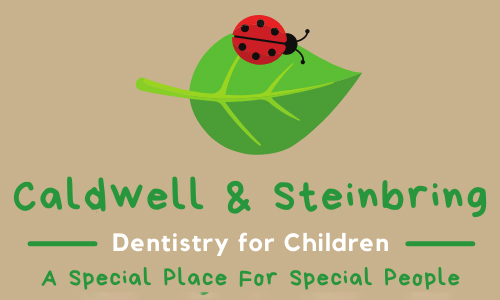Articles
The Dentist and the Down's Syndrome Patient
Down's Syndrome children can often have a very positive and rewarding experience with the dentist. Most pedodontists and their staff have completed additional training and are comfortable in dealing with those children who have special needs. However, the treatment of Down's Syndrome patients can be very difficult for the patient, parent and dentist. The manner in which treatment is accomplished will depend upon how cooperative the patient is.
An initial evaluation will include having the patient seated in a dental chair alone. If that is possible, then an oral examination is done using only fingers. If this is accomplished, a dental examination using dental instruments will take place. A prophylaxis of teeth is the next step, followed by dental radiographs.
It is possible that the patient will not be cooperative; in which case a papoose wrap is used to immobilize the patient. Parents, dental assistants or the dentist trying to physically hold a patient down can be dangerous and possible bone fractures can occur. A papoose wrap will give an even pressure restraint, a mouth prop may also be needed if a patient will not open, or keep open, their mouth. The mouth prop keeps the patient from biting on an instrument and hurting themselves.
Oral pre-medication for sedation purposes may also be needed. The best way a parent can be confident of the different treatments is to consult their dentist and understand the appropriate treatment. The worse possibility is not to visit a dentist.
There can be many other questions that pertain to a Down's Syndrome patient, but these are some generalities. The best advice any parent of a Down's Syndrome child is to practice proper oral hygiene and see the dentist regularly.
New Alternatives For White Pediatric Crowns
Finding out that your child has extensive tooth decay and needs crowns can be overwhelming. But having the option available to restore your child's teeth with new, state-of-the-art, natural looking crowns will put your mind at ease. Dr. Caldwell introduces and is now providing new EZ Pedo White Crowns for Kids. EZ Pedo has created a totally new approach to restoring the natural appearance of a child's smile with a ceramic crown designed to overcome many of the limitations of other prefabricated pediatric dental crowns.
Composed entirely of one solid tooth colored material, these crowns look extremely aesthetic, both from the front and on the inside of the mouth. EZ Pedo is the first Metal-free, ceramic, solid Zirconia crown for children approved by the FDA. As one mother remarked, " A smile that doesn't encourage teasing is a wonderful gift for any child." So if your child is a candidate for pediatric dental crown restoration, let Dr. Caldwell visit with you about the new options available.
Mouth Ulcers
Recurrent ulcers in the mouth occur in approximately 20-40% of the U.S population. Individuals who have a decreased thickness in the lining of the mouth are more prone to these ulcers. The thinner lining of the oral mucosa (lining of the mouth) is genetically related. The duration of these ulcers can be from two days to six weeks, with most lasting between 7-10 days. These ulcers can occur as single or multiple lesions and do not occur on the lips or gum directly around the teeth.
Causes
The most common reason these ulcers appear can range from trauma to foods. Trauma is one of the most common reasons for ulcers that occur in individuals who do not have ulcers on a recurring basis. This trauma can be an external hit or blow, but can also occur because of internal trauma such as toothbrush or a toy or pencil scraping the inside of the mouth. For individuals who get ulcers more frequently, a simple change of toothpaste can cause them to occur. Certain foods are also a cause; with the most common irritants being chocolate, coffee, peanuts, almonds, strawberries, cheese, tomatoes, citrus and wheat. There is some belief that Advil and Motrin could also be a cause.
Treatment
The treatment for ulcers is one of pain control. Orabase, Colgate Total and Canker Cover are some of the most common ointments used. A common holistic approach is to use honey. All of these can be used on an as needed basis. There are prescription coating agents for severe outbreaks, but most can be treated with over-the-counter ointments.
